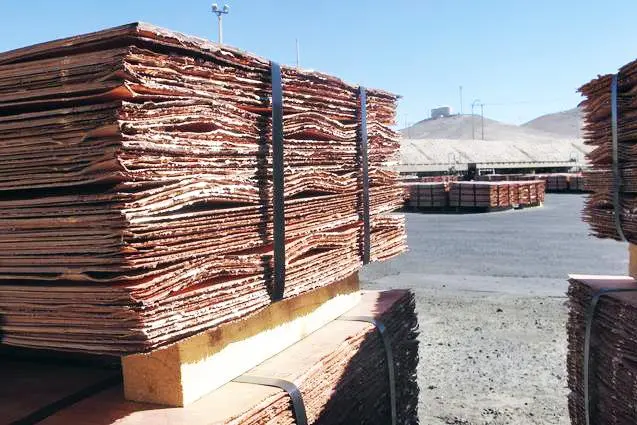PHOTO
LONDON - Copper prices retreated on Friday, weighed down by persistent worries about weak demand in top metals consumer China.
Three-month copper on the London Metal Exchange was down 0.9% at $8,536 per metric ton by 1345 GMT after rising 1.2% on Thursday.
Copper pared losses slightly after U.S. jobs data, which prompted a reversal lower in the dollar index.
The data showed that the U.S. economy maintained a moderate pace of job growth in July, but solid wage gains and a decline in the unemployment rate pointed to continued tightness in labour market conditions.
A weaker dollar makes commodities priced in the U.S. currency less expensive for buyers using other currencies.
"On the Chinese front, the PMIs are in contractionary territory, so that is also causing pressure on metals prices," said Naeem Aslam, chief investment officer at Zaye Capital Markets.
China is expected to roll out further support to boost economic growth, especially in the property and infrastructure sectors, both major consumers of industrial metals, but a series of announcements in recent weeks have offered few details.
Aslam said worries about a U.S. recession were overblown, highlighted by strong results from Amazon overnight.
"We believe we will see robust and sustainable growth in copper demand so the current weakness in prices is an opportunity to buy."
There was one bright area in Chinese demand with new orders from the power sector expected to lift operation rates for copper cable and wire producers to 86.8% in August from 84.8% in July, according to the Shanghai Metals Market.
But demand from other copper-related sectors stayed tepid, offsetting some supply tightness in the market, it added.
LME tin dropped 1.3% to $27,655 a metric ton, pulling back from previous gains driven by a mining ban in third-largest tin miner Myanmar.
Among other metals, aluminium shed 0.4% to $2,219.50 a ton, nickel shed 2% to $21,175, lead fell 1% to $2,135, while zinc rose 0.5% to $2,498.
(Reporting by Eric Onstad; additional reporting by Siyi Liu in Beijing; editing by Sharon Singleton and Jason Neely)





















